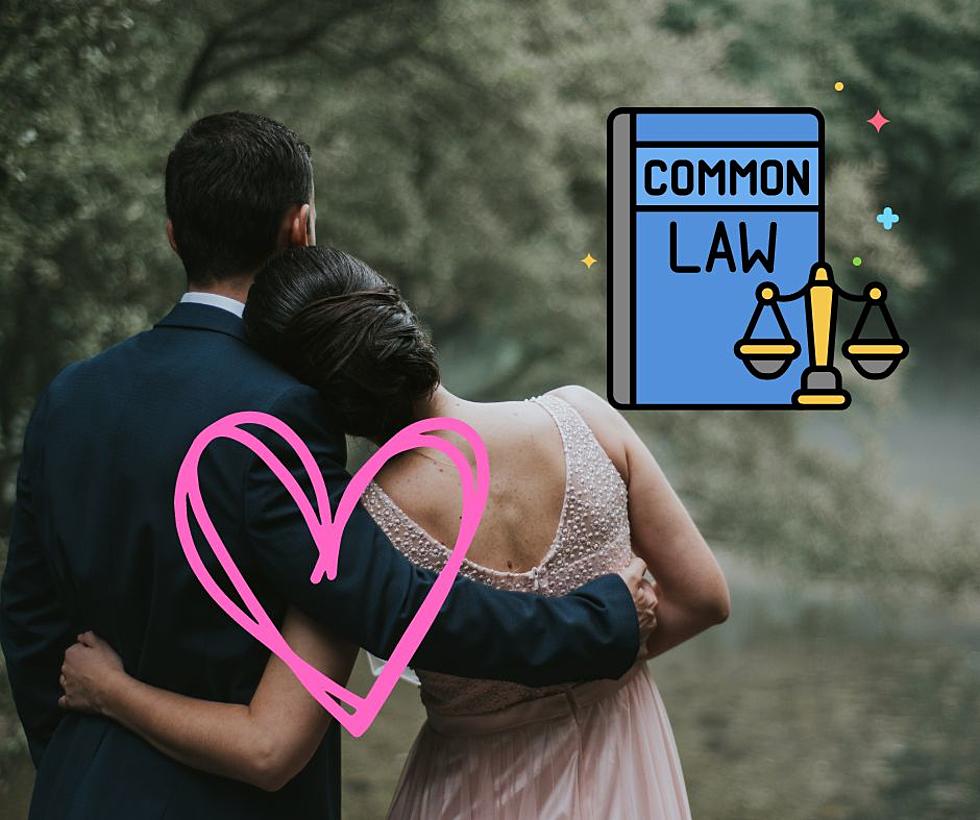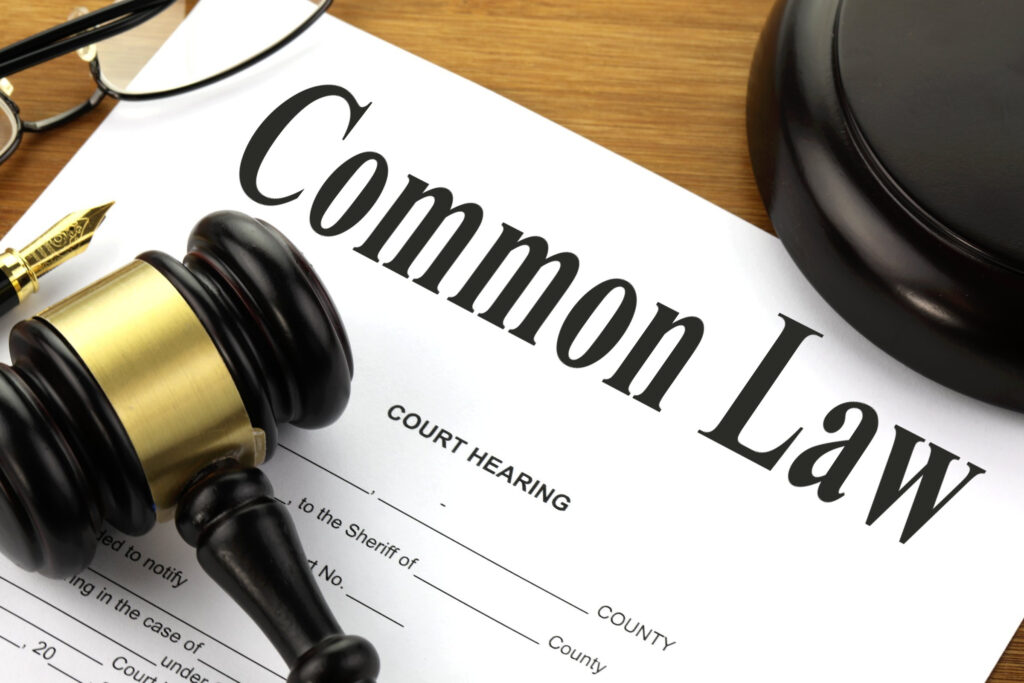In Iowa, there is a way to be married without ever having a ceremony or signing any legal documents. This type of marriage is called a “common law marriage.” Common law marriages in Iowa are recognized and have the same legal rights as marriages that are performed by a priest or justice of the peace. So, if you’re thinking about getting married but don’t want to go through the hassle of a formal wedding ceremony, you may want to consider common law marriage. Keep reading to learn more about common law marriage in Iowa!
Contents
- 1 What is common law marriage and how does it work in Iowa specifically?
- 2 What are the benefits of having a common law marriage in Iowa instead of a regular marriage license?
- 3 What are the disadvantages of being in a common law marriage relationship versus a traditional marriage relationship?
- 4 How does a common law in Iowa divorce work, and what are the steps involved?
- 5 How do you know if you’re in a common law marriage – are there any signs to look for?
- 6 Conclusion: Common law marriage in Iowa
- 7 FAQ: Common law marriage in Iowa
- 7.1 What are some of the things to consider before entering into a common law marriage in Iowa?
- 7.2 What documents do I need to dissolve a common law marriage in Iowa?
- 7.3 Is there a time limit for common law marriages in Iowa?
- 7.4 Do both parties need to agree to enter into a common law marriage in Iowa?
- 7.5 What happens to your property if you split up after being in a common law marriage?
- 7.6 How does common law marriage compare to traditional marriages?
- 7.7 Which of the following is a requirement for all common law marriages?
- 7.8 What are the requirements for common law marriage in Iowa?
- 7.9 Is Iowa a common law property state?
- 7.10 What are common law rules in Iowa?
- 7.11 Are common law wivesin Iowa entitled to half?
What is common law marriage and how does it work in Iowa specifically?
A common law marriage is a type of legal union between two people that is recognized as being equivalent to a traditional, formally registered marriage. In Iowa, common law marriages are recognized if certain criteria are met. The couple must live together for an extended period of time and both partners must agree to the marriage. Additionally, they must present themselves in public as a married couple, meaning they must use a shared surname and be willing to introduce each other as spouses.

If all of these criteria are met, then the couple is considered to be in a common law marriage in Iowa and their union has the same legal rights and responsibilities as any other marriage. This includes rights related to inheritance, property division, and more.
Common law marriages in Iowa can be dissolved in the same manner as a traditional marriage – through divorce proceedings or annulment. In order to do so, however, both partners must agree to the dissolution of the marriage.
It’s important to note that not every state recognizes common law marriage. If you plan on entering into a common law marriage in Iowa, it’s important to make sure that your union will be recognized in any other state you may move to.
Ultimately, if you and your partner are considering getting married but don’t want to go through the hassle of a traditional ceremony, common law marriage might be an ideal option for you. Be sure to do your research and consult with a legal expert before making any decisions.
What are the benefits of having a common law marriage in Iowa instead of a regular marriage license?

Common law marriages offer a number of benefits over traditional marriage licenses. For one, there is no need for a formal ceremony or legal paperwork; couples simply declare themselves married and take on the same rights and responsibilities as any other married couple. Additionally, common law marriages can be dissolved without having to go through divorce proceedings – both partners must simply agree to the dissolution of the marriage and it is considered legally terminated.
Common law marriages also offer more flexibility than traditional marriages. Couples can decide to enter into a common law marriage on their own terms, without having to adhere to any specific rules or regulations. Finally, common law marriages often remain valid even if the couple moves to another state, whereas a traditional marriage license may not be recognized in other states.
Overall, common law marriages are an increasingly popular option for couples who wish to have the same rights and responsibilities as any other married couple, without having to go through all of the hassle of a formal wedding ceremony or obtaining a marriage license. If you think this is right for you and your partner, be sure to research the laws in your state and consult with a legal expert before making any decisions.
What are the disadvantages of being in a common law marriage relationship versus a traditional marriage relationship?
One of the main drawbacks of entering into a common law marriage is that it can be difficult to prove the marriage in certain situations. For example, if you and your partner ever need to access government benefits, such as Social Security or Medicaid, the two of you may have difficulty proving your marital status without an official certificate or other legal documentation. Additionally, if you and your partner ever decide to end the marriage, it can be complicated to prove that the union was actually a valid common law marriage.
Another potential disadvantage of entering into a common law marriage is that the laws vary by state. This means that even if you’ve entered into a valid common law marriage in one state, other states may not recognize your union as legally binding. Finally, common law marriages can be more difficult to dissolve than traditional marriages since both parties must agree to the dissolution of the marriage.

As with any relationship decision, it’s important to weigh the pros and cons before entering into a common law marriage. Be sure to research the laws in your state and consult with a legal expert to make sure you’re making an informed decision.
Ultimately, if you and your partner are looking for a relationship that offers similar rights as a traditional marriage without all the paperwork, common law marriage in Iowa might be a good fit. Just make sure to do your research and talk to a legal expert before taking the plunge.
How does a common law in Iowa divorce work, and what are the steps involved?
In Iowa, a common law marriage can only be dissolved if both parties agree to the dissolution. This means that unlike in traditional marriages, there is no need for contentious divorce proceedings or court hearings. In general, the steps involved in dissolving a common law marriage are as follows:
1. Agree on how to dissolve the marriage – This may include discussing the division of assets, debts, and any other terms related to ending the marriage.
2. File the Marriage Dissolution Affidavit form with your local county clerk’s office – This is a simple form that both parties must sign in order for the dissolution to be legally recognized.

3. File other documents with your county clerk’s office – Depending on the circumstances of your dissolution, this could include things like a parenting plan or an agreement regarding child support or alimony.
4. Wait for the final decree of dissolution to be issued – This is the official document that confirms your marriage has been dissolved. Once this has been issued, you can both move on with your lives separately.
It’s important to note that the laws surrounding common law marriages and divorces vary by state. Before taking any action, be sure to research the laws in your state and consult with a legal expert to ensure that you are following all of the necessary steps.
How do you know if you’re in a common law marriage – are there any signs to look for?
In order to determine whether or not you are in a common law marriage, it’s important to take into account the laws in your state. Most states require that certain criteria be met for a couple to be considered married under common law. Generally speaking, these criteria include:
– Both parties must agree and hold themselves out to others as a married couple
– Both parties must live together as a married couple
– Both parties must intend to be married and not just cohabiting.
Additionally, some states may have additional requirements for common law marriage, such as sharing bank accounts or filing joint tax returns. Be sure to research the laws in your state to ensure that you and your partner meet all of the necessary criteria.
If you do believe that you are in a common law marriage, it’s important to consult with a legal expert to confirm your status and make sure that you are protected under the law. Even if your state does not recognize common law marriages, consulting with an expert can help you ensure that your rights are protected in the event of a split.
Conclusion: Common law marriage in Iowa
Common law marriage can be an attractive option for couples who want to enjoy similar rights as a traditional marriage without all of the paperwork and hassle. However, it’s important to understand the laws surrounding common law marriage in Iowa and consult with a legal expert to make sure that your rights are protected.
FAQ: Common law marriage in Iowa
What are some of the things to consider before entering into a common law marriage in Iowa?
To be legally married in Iowa, you need to prove that your relationship with the person is similar enough for it not fall under any other type of jurisdiction. You also have live together continuously as spouses and show up publicly holding hands or something similar when applying through town hall; this may sound pretty basic but there’s no way around showing off your love!
Additionally, you must both agree that you are married and hold yourself out to everyone else as a married couple. It’s also important to understand the rights, responsibilities and financial implications of entering into a common law marriage.
What documents do I need to dissolve a common law marriage in Iowa?
The necessary documents needed to dissolve a common law marriage in Iowa will vary depending on the individual circumstances. Generally, you will need to file a petition for dissolution with your county court and provide evidence that shows you have been living apart from each other for at least one year. Additionally, both parties must sign a simple form that is legally recognized for the dissolution to be valid. Depending on the situation, you may also need to provide a document that confirms the marriage has been dissolved.
Is there a time limit for common law marriages in Iowa?
Yes, depending on the state you live in, there are usually time limits set as to how long a couple can be considered married under common law before it must be officially registered with the government. In Iowa, the time limit to register a common law marriage is two years. After two years of living together as a married couple, it must be officially registered with the state if you wish to stay in it.
If you have been living together for longer than two years and have not yet registered your marriage, you may still be able to do so, but you should seek legal advice to ensure that your rights are protected.
Do both parties need to agree to enter into a common law marriage in Iowa?
Yes, both parties must agree and hold themselves out as a married couple in order for the relationship to be considered legally valid under common law marriage. If one of the parties is denying the relationship, then it cannot be considered a common law marriage.
It’s important to note that even if one of the partners denies the relationship, they may still receive some of the benefits associated with common law marriages such as division of property and spousal support in the event of a split. It’s best to consult with a legal expert to make sure that you are protected under the law.
What happens to your property if you split up after being in a common law marriage?
Common law couples are given the option to share property acquired when they lived together, but this does not mean that one partner must give up their belongings. If both partners want a piece of what was bought with money or resources obtained during an intimate relationship then there should be enough for everyone’s needs in any case!
How does common law marriage compare to traditional marriages?
Common-law marriage is not a recognized institution in most states. This means that two people who live together and present themselves as husband or wife without getting married can’t automatically get access to the same benefits of marriage, such as inheritance rights for their partner’s property if they die simultaneously (or at least within 90 days). retention liability insurance premiums will also vary depending on where you live; those living inside one commonwealth may need separate proof of insurability while those outside could be denied completely!
Which of the following is a requirement for all common law marriages?
You must live in the same state as your partner. You’ll have to prove that you are both legally able and willing, but it’s possible if both of those things apply!
A couple also needs an agreement from each other-one where they promise publicly (with friends or family) on behalf of themselves too say “I do.”
What are the requirements for common law marriage in Iowa?
The Iowa court will look at whether or not a common law marriage exists by determining if there was an intent between the couple, their continuous living together and holding themselves out as man and wife.
Is Iowa a common law property state?
When a couple is divorcing, their shared property must be divided fairly and equitably. Equitable distribution does not mean that it must divide evenly or 50/50 – instead the court will look at what each party brought into marriage as well as any contributions they made during cohabitation such an income from work outside of home hours monitoring children’s homework etc., this gives them an idea on how much should go where!
What are common law rules in Iowa?
To be married by common law in Iowa, a couple must first have an agreement that they are married. They also need to live together continuously as spouses and publicly present themselves with each other’s names on their ID cards or driver’s license during the period when either one of them could Turbo-ChargeWireless™ under his/her own name .
Are common law wivesin Iowa entitled to half?
Common-law wives are not entitled to half of the marital property in Iowa. Instead, they will only receive a share that is “fair and reasonable” for them according to Code § 598 21 . This means it’s more likely than not you’ll see either one or two thirds (67%) going towards your common law marriage instead; this does NOT include any extra funds added into their account after separation!
Scott A. Bentley Attorney at Law in McHenry, IL is a debt relief and personal injury attorney dedicated to helping people in their time of need. He can assist in filing bankruptcy under the bankruptcy code or work with you through a personal injury case. His more than 25 years of experience provide him with the insight and knowledge you need when contending with difficult legal issues. Scott Bentley bankruptcy services stop: Creditor harassment, Lawsuits, Garnishments, Foreclosures, Repossessions, By filing for chapter 7 or 13 bankruptcy with Scott Bentley, you’ll also be able to create personal reorganization plans that serve to resolve individual bankruptcy issues. He and his staff are committed to providing you with dignified service and the respect you deserve. Just because you owe someone or some company money doesn’t mean you forfeit your rights. With Mr. Bentley you can be sure you will receive personalized attention and aggressive legal representation. The firm is proud to

